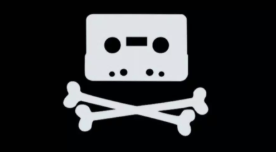 The Netherlands has long been a relatively safe haven for pirating consumers.
The Netherlands has long been a relatively safe haven for pirating consumers.
Downloading movies without permission, regardless of the source, was not punishable by law according to Government officials.
This eventually changed in 2014 when the European Court of Justice ruled that this tolerant stance was not in accordance with EU law . As a result, the Dutch Government quickly outlawed downloading from unauthorized sources.
Despite this radical shift, in reality, not much changed for pirates. Sharing pirated material via torrents was already outlawed since it involved uploading. Also, copyright holders were and are not suing casual file-sharers in court.
Filmmaker Sue Dutch State over Piracy Messaging
Instead of going after pirates, copyright holders pointed their finger at the Dutch state. In 2015, Dutch filmmakers’ association SEKAM lodged a legal claim against the state , demanding compensation for the piracy losses they claimed to have suffered.
The filmmakers highlighted statements that were made by Government officials which clearly indicated that downloading pirated material was allowed. These statements were made prior to the downloading ban.
One of those statements was made in a 2010 press release by former state Secretary for Security and Justice Fred Teeven. Looking ahead at future policy, he noted that “downloading of copyright-protected works from evidently illegal sources will become unlawful, but not punishable.”
Dutch State Held Liable
In 2018, the Court of The Hague partially sided with the filmmakers . It ruled that the statements indeed confirmed that downloading pirated material was allowed and that the Dutch state can be held liable for the resulting damage.
“Based on this message, expressed by the responsible Government official in the public domain and in the media, there will have been downloaders who assumed that downloading from illegal sources was permitted, whereas this was generally known to be forbidden in other EU member states,” the Court wrote.
The Dutch state was not happy with this conclusion and appealed the matter, with success. A recent verdict by the Appeal Court finds that the state did not induce piracy and is therefore not liable for any damages.
Appeals Court: State Did Not Induce Piracy
The Appeals Court agreed that the Government’s messaging indeed suggested that downloading pirated material was not unlawful. That’s not unusual, since this was also the Government’s perception at the time.
According to the Appeals Court, these statements were factually correct. While the European Court later ruled that this policy ran contrary to EU law, that wasn’t known at the time.
Also, unlike the lower court, the Appeals Court does not believe that these statements encouraged any people to pirate. On the contrary, the same press release mentioned that this type of piracy would be outlawed in the future.
“It cannot be seen that the Statements made in 2010 induced persons to illegally download, especially when taken into account the Government’s incorrect conviction that downloading from illegal sources was allowed, had already been advocated since 2002/2003,” the verdict reads.
“So there was no expected disadvantage from these statements for rightsholders such as SEKAM,” The Hague’s Appeals Court adds.
The verdict is a clear win for the Dutch state, which doesn’t have to pay any piracy damages based on the statements that were made in the past. SEKAM doesn’t have to pay anything either. As IPKAT notes, the Dutch state agreed not to claim legal costs if the filmmakers association agreed not to argue the appeal.
—
A copy of The Hague’s Appeals Court ruling is available in Dutch here (pdf)
From: TF , for the latest news on copyright battles, piracy and more.
chevron_right



 The Netherlands has long been a relatively safe haven for pirating consumers.
The Netherlands has long been a relatively safe haven for pirating consumers.